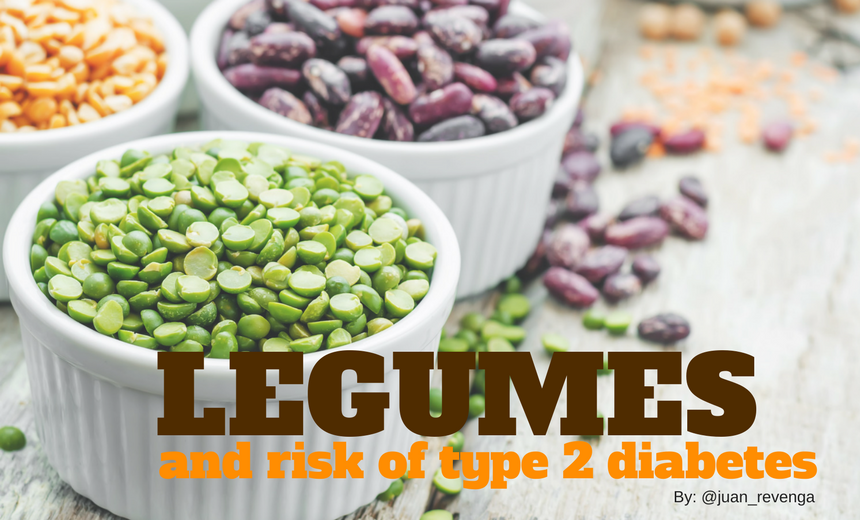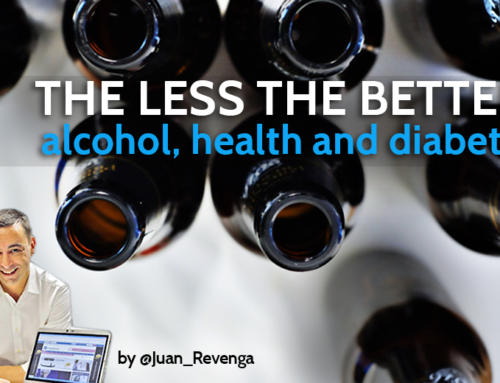Don´t try to badmouth legumes and diabetes, it´s impossible
Although legumes are an outstanding source of health, we eat very few, or not sufficient. Its nutritional characteristics make them one of the most recommended foods both to reduce the risk of type 2 diabetes and its treatment. Here you´ll find a number reasons, you name them, why you should include them in your diet 2 or 3 time a week.
There are very little aliments that are undeniable healthy, and that is legumes: beans, peas, lentils, and so on. Legumes are included in the most recent and appealing diet guides; such as the Healthy Eating Plate of the Harvard School of Public Health or the Nutritional Triangle of Flamenco Institute for Healthy Living (Vlaams Instituut Gezond Leven). And the value of legumes is undeniable despite that is somehow brush aside by wide portion of the population.
Except for allergies or intolerances there is no much scientific literature against legumes, at least I couldn´t find that much. On the contrary, there is strong push toward its presence in our diet. And most do it because of the evidence found to reduce risk of many metabolic diseases, specially type 2 diabetes.

Health benefits of legumes and diabetes
Nutritional and health benefits of dried beans , published by The American Journal of Clinical Nutrition, concludes that beans are excellent sources of protein and several micronutrients, some of which fall short in Western diets. They are also rich in fiber and RS, which may account for some of their proposed health benefits, and may reduce risk of ischemic heart disease and diabetes.
More specific, and close to diabetes, the case Frequency of Food Consumption and Self-reported Diabetes among Adult Men and Women in India has confirmed findings from high income countries that diabetes among adult Indians, which is large and increasing, might be contained by regular consumption of vegetarian foods including legumes, fruits and dairy products.
It is the American Diabetes Association, a worldwide reference in diabetes, that exposes a list of diabetes superfoods that starts with legumes: Kidney, pinto, navy, or black beans are packed with vitamins and minerals such as magnesium and potassium. They are very high in fiber too. Beans do contain carbohydrates, but ½ cup also provides as much protein as an ounce of meat without the saturated fat.
It is more than likely that the ability of legumes to reduce the risk of diabetes and to be part of their dietary treatment, responds to their ability to reduce glycemic load of a given intake. This is due to two main characteristics of legumes: the richness in fiber and the presence, along with other nutrients such as proteins, of slowly absorbed carbohydrates.

The concern with legumes
The consume of legumes in the most developed countries is decreasing. It could be for a poor image of them as a rather humble and cheap product; to the “supposed” difficulty of cook legumes; or to the described gastrointestinal inconveniences. The bottom line is we eat very little legumes.
It is convenient that at least (and I underline “at least”) we have legumes two or three times a week all year round. We must run away from prejudices:
Legumes are not “chic”: think of health, taste and real food. Forget fashion and trendies… Eat legumes.
- Difficult to cook: no way. The only skill you need to cook legumes is time. It takes a little time, that is true, but it is worthy time spent.
- Regarding the mentioned gastrointestinal inconveniences, not to call them by its name, there are tricks that help to reduce the effect: from cutting boiling twice or three times and cooling the legumes, to ad some plants like chamomile, fennel, lemon balm, caraway, turmeric, anise…
Very few advices are stronger, and riskless, when health promotion than encouraging eating legumes in our diet. Do not hesitate, and eat them two or three time a week. Your health will show gratitude for it!
Latest posts by Juan Revenga Frauca (see all)
- Obesity recognized as a chronic disease - 13 October, 2021
- Who said you have to eat everything? - 7 October, 2021
- Diabetes and Alzheimer - 29 January, 2021




 Legumes are not “chic”: think of health, taste and real food. Forget fashion and trendies… Eat legumes.
Legumes are not “chic”: think of health, taste and real food. Forget fashion and trendies… Eat legumes.



